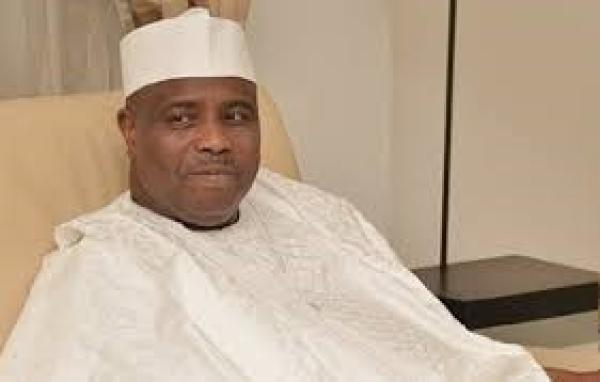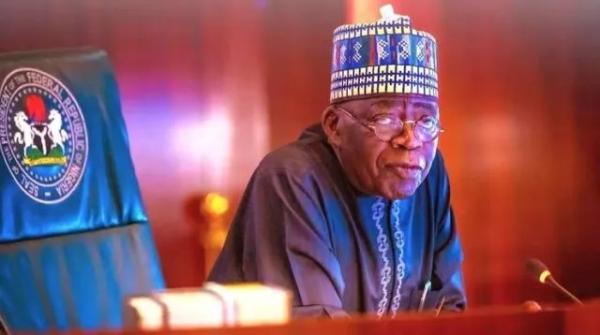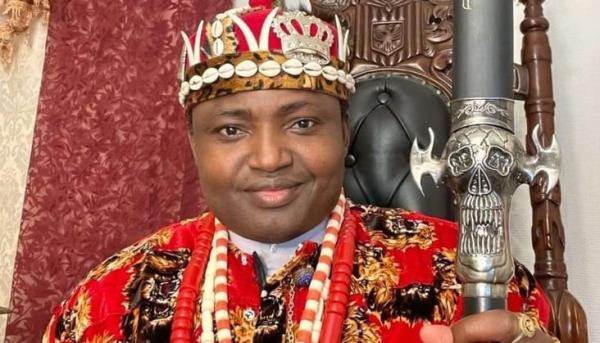
Chukwuma Soludo
The All Progressives Congress (APC) has given the former Governor of the Central Bank of Nigeria (CBN), Prof. Chukwuma Soludo, the thumbs up for his recent prognosis on the state of the economy under the administration of President Goodluck Jonathan.
In a statement issued on Thursday by the APC Presidential Campaign Organisation, APC said Soludo’s widely published article titled, Buhari Vs. Jonathan: Beyond the Election”, was highly welcome at a time “when those who should know would be doing Nigeria a great injustice by keeping quiet”.
It said any advice given by the former CBN governor ought to be given critical attention by any serious-minded party, adding that his article was a wake-up call for Nigerians on the reality of the quagmire the Peoples Democratic Party (PDP)-led government had placed the country in the last five years.
“As a former Chief Economic Adviser to the President and later CBN Governor, Prof. Soludo surely knows what he is talking about.
"On our part as a party that is determined to reverse the nation from the march to self-destruction, we have taken a long and hard look at most of the issues raised by the erudite professor, and we have penned down credible and workable answers to the issues raised.
“While not denying the nobility and originality of our ideas for change, the writer only assumed that with the current state of the badly battered public finances, our party when elected into power would not be able to fulfill its promises,” it said.
APC was of the view that Soludo’s assessment should not be criticised, but should be provided with honest answers since its manifest intent and purpose is to engender qualitative debate and not strife.
Making references to its track record in APC controlled states in the country, it said: “Based on our track record in the states we presently control, any discerning observer would notice that there is a pattern of governance that APC states are known for.
“Wherever we lead, one of the first things we do is to bolster the capacity for internally generated revenue through a programmed course of action. Some examples would be apposite here: Lagos State in 1999 was generating a meagre N600 million monthly, but today it generates an average of N20 billion.
“Osun State, in 2010 when we took over, was generating a measly N300 million monthly, today it generates an average of N1billion despite the economic and political constraints trying to hinder her progress.
“Kano State used to raise a meagre N400 million monthly in 2011, today it has grossed over N2 billion monthly. All these increased earnings were mostly done by blocking leakages, ensuring the integrity of the collection and remitting system and utilising the scarce resources in the best interest of the people.
“So we believe that with careful planning and transparency, we would double our non-oil revenue in two years, by re-enacting our knack for excellence at the federal level.”
APC further noted that tackling corruption is the singular most important economic initiative that must be pursued vigorously in the country at this time.
“According to the National Bureau of Statistics (NBS), Nigeria earned N51.50 trillion as proceeds from oil between 1979–2011. Only N3.10 trillion was earned between 1979-1999, from 2000-2011 the sum of N48.40 trillion was received.
“The successive regimes from the civilian to military were still able to build the longest bridge in Africa, the National Assembly complex, massive roads, refineries, power lines, dams, etc, despite the relatively low earnings.
“Our belief is that the opaque nature of our major revenue earning institutions like the NNPC, Customs, Internal Revenue Service, etc, needs to change, as these institutions can earn far more than they are currently doing,” it posited.
The main opposition party said an APC-led government under its presidential candidate, Major-General Muhammadu Buhari (rtd), is ready to reverse this trend.
“Government money must be put in the service of the people and not squandered by a few cabals.
“Another important source of leakage and corruption is the procurement system currently in place.
“While we would encourage both big and small contractors, we would however sanitise the procurement system and ensure all contracts give optimum value for money.
“Our procurement system would be transparent for all Nigerian to know how our commonwealth is being disbursed. It is now pedestrian information that Nigeria loses about 17 per cent of its oil production to oil theft. This translates to about 400,000 barrels per day.
“Since President Goodluck Jonathan assumed office on May 6, 2010, over N6 trillion of government funds have been stolen through fraud, embezzlement and theft in the oil industry alone.
“This, to us, is unacceptable. We believe that the greatest losers in this evil scheme are the people of the Niger Delta and the vulnerable majority of our people. We would reverse this trend and make the money work for the people,” APC pledged.
The party also drew attention to the costing of welfare programmes in the country as raised by Soludo in his article, stating: “We have done our homework in this regard, before we put forward the figures, it is important to note that a nation with 80 per cent graduate unemployment; over 100 million living below poverty; 10.8 million children out of school, etc, we cannot afford not to take any risk to salvage our nation.
“Our current security problems of insurgency, kidnapping, militancy, etc, are aggravated by the vast army of unemployed youths available to be recruited into such crimes.
“We believe by spending money to reduce poverty, empower our youths and give hope to the vast majority of Nigerians, our nation would resurge back to productivity and prosperity.
“We have tested it and it worked in states like Osun where meals are given to children every day. The state government ensured all the foods consumed are produced locally, so it buys agro products from farmers at a guaranteed price; about 3,000 food vendors were also given seed capital to become cooks for the schools in their vicinity.
“That policy alone made the state attain the status of highest school enrolment by population; lowest unemployment rate (3 per cent compared with national average of 24 per cent); and one of the leading agro-based economies in Nigeria.
“So in the long run, it is not how much we spend that is the greatest issue for us, it is how much hope, employment and sustainable revenue we would start realising from such bold ventures.”
APC added that its proposed 740,000 emergency new jobs in the 36 states would cost N88.8 billion per annum at N20, 000 per month; the social security programme of conditional cash transfer of N5, 000 monthly to at least 25,000,000 poorest and most vulnerable people would amount to N125bn/month; and on the primary school feeding programme, at a cost of N2.5 billion per month by 36 states would cost N90 billion per month.
All these costs, it said, are structured to simultaneously boost production and local economies in the country.






















